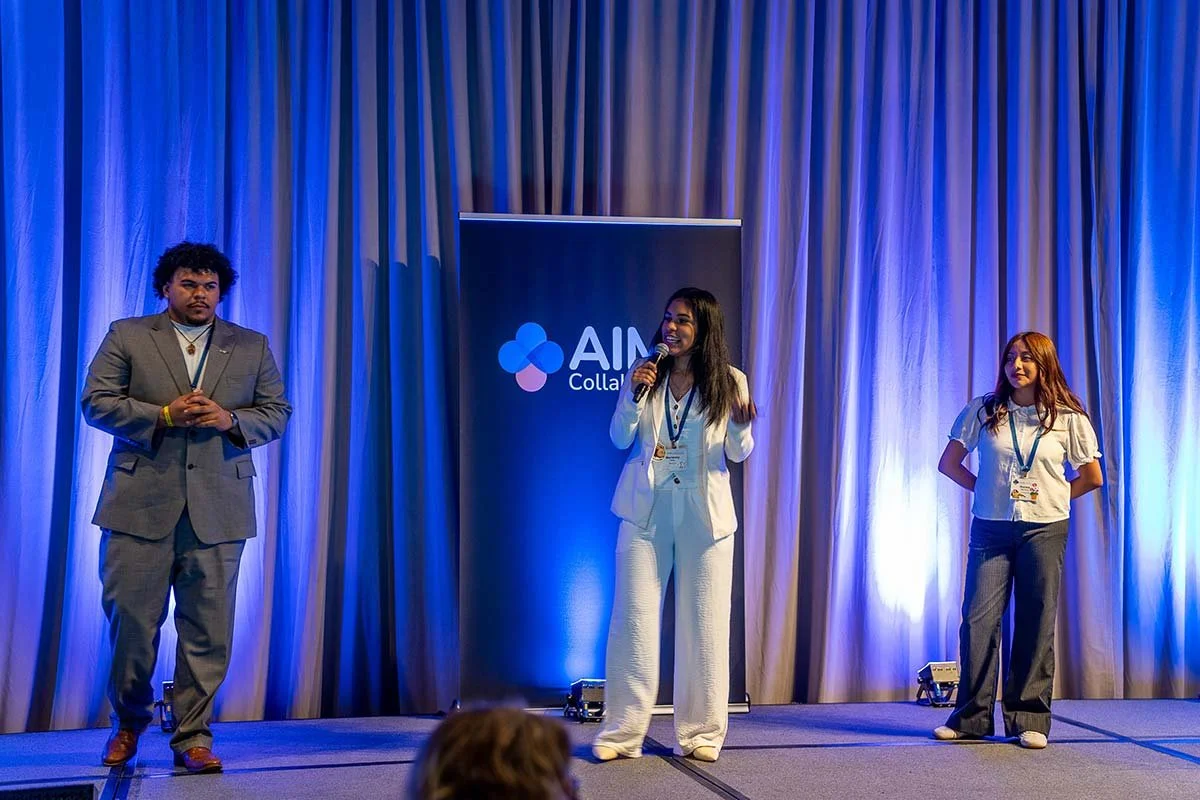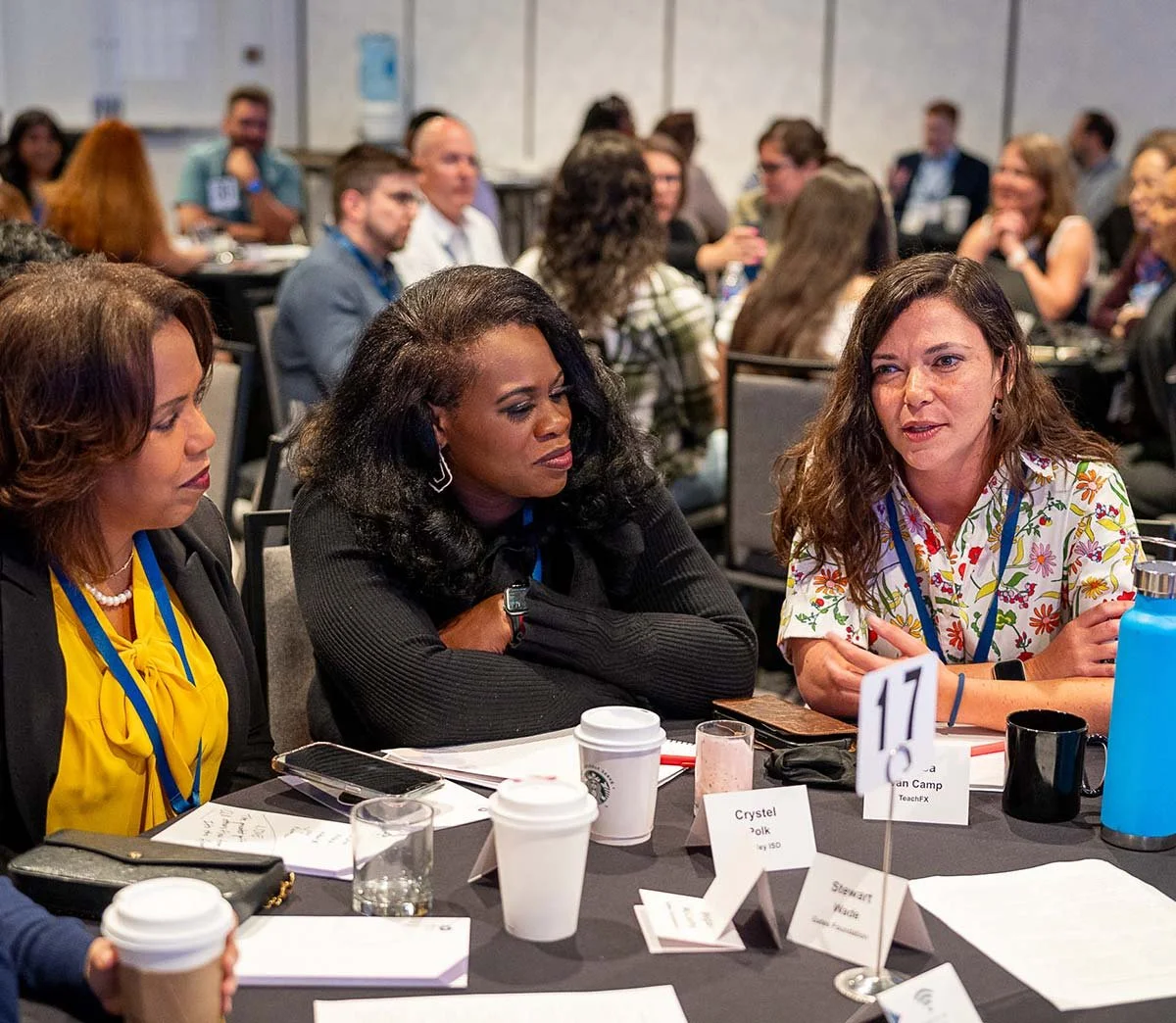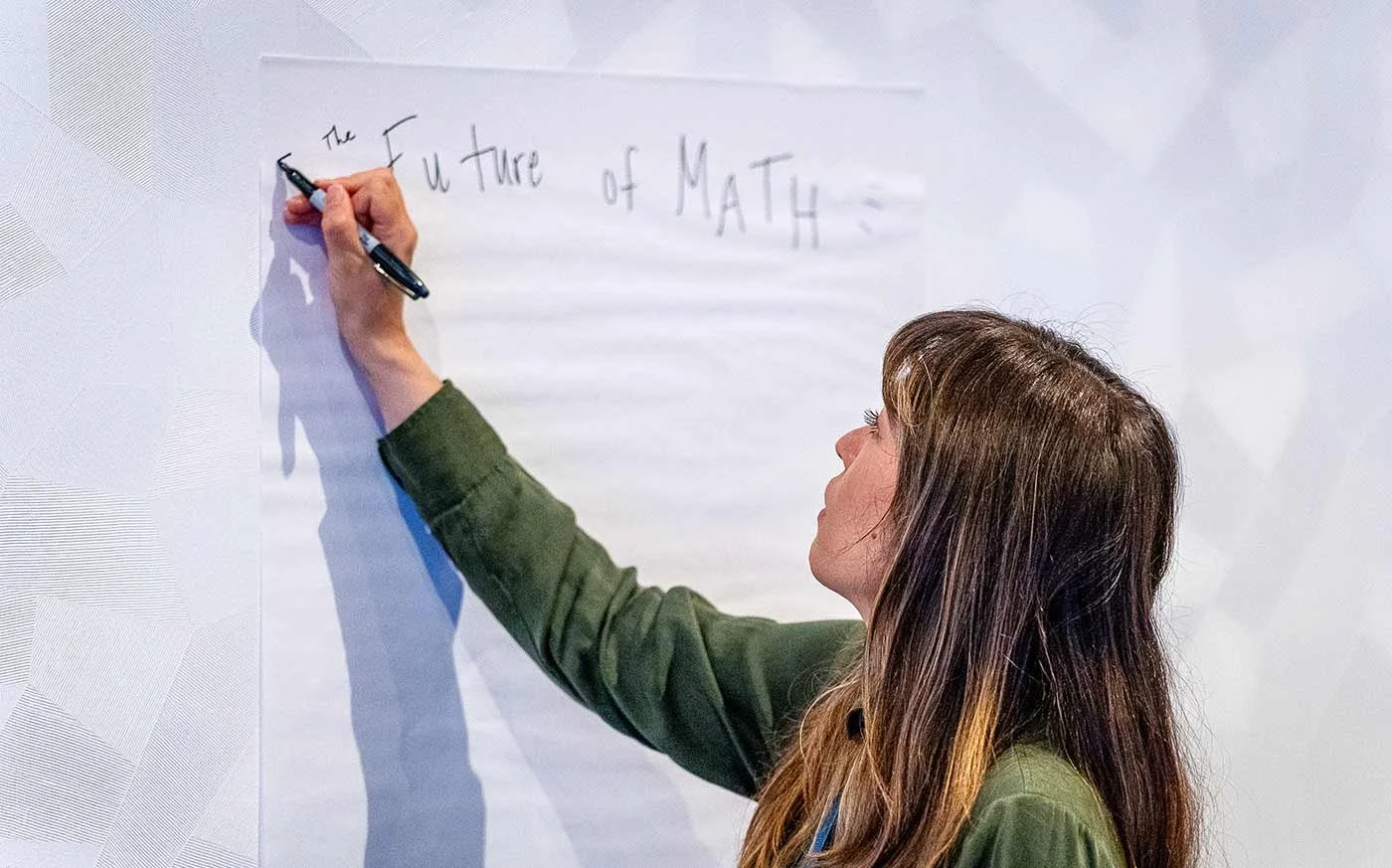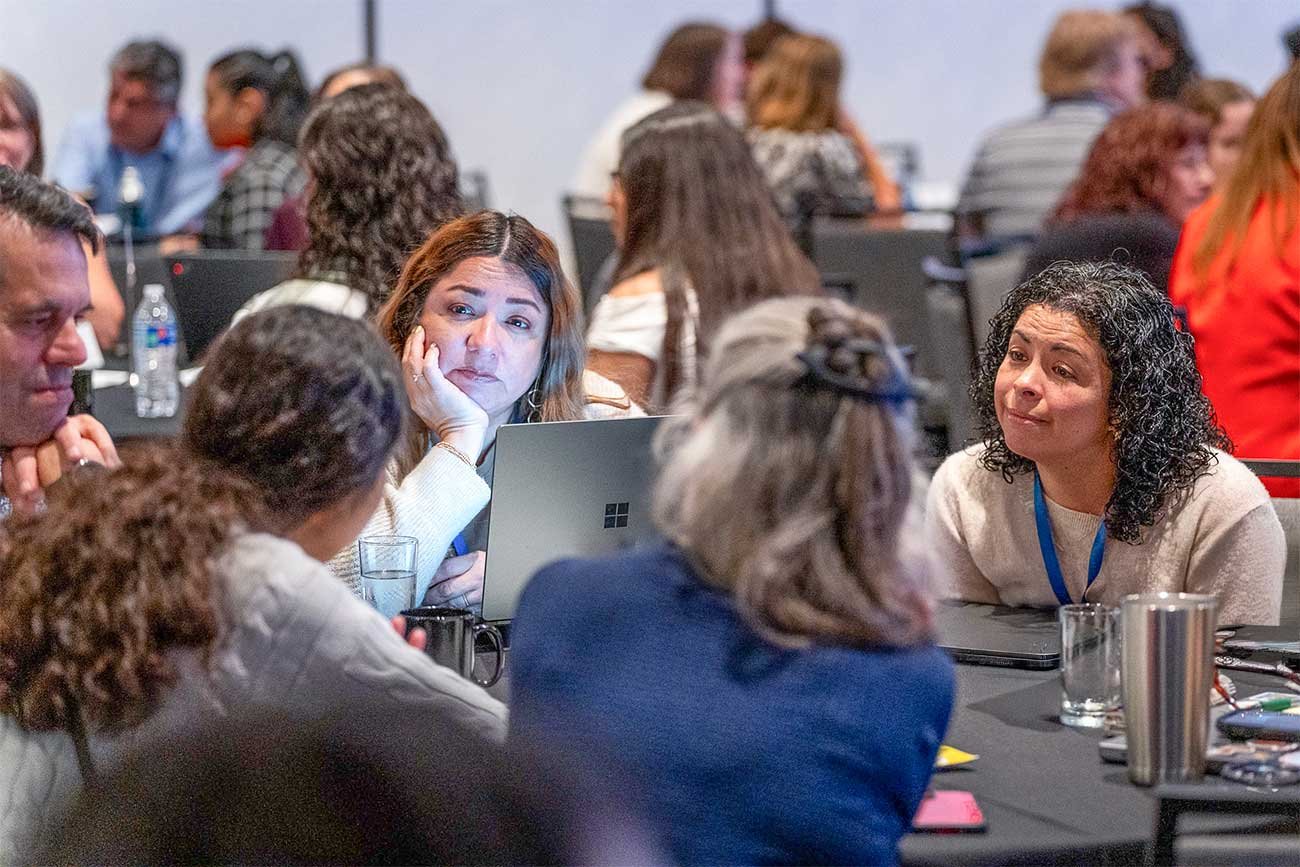Cross-team Supports
The AIMS Collaboratory provides cross-team supports to teams as they respond to their shared R&D challenges. These supports provide avenues for AIMS members to collaborate and learn from one another. At regular intervals throughout the year, the FacilitationTeam identifies which supports will be most useful by collecting input from project teams, advisory board members, and learning partners.
Centering Voices of Youth and Educators
Connecting directly with youth, educators, and communities is foundational to centering equity. Developing and nurturing these connections requires support, tools, coaching, and resources, all of which allow teams to draw closer to those with lived experiences in the school system. Our hope is that teams are ultimately empowered to engage in co-design and research practice partnerships that center the needs of practitioners. This set of cross-team supports ensures that members of the AIMS Collaboratory are able to drive towards equity by utilizing practices that uplift members of the communities we seek to serve.
Cross-team supports cultivate meaningful conversations, curate workshops, and also foster partnerships for teams through external learning partner organizations that have deep expertise in these areas.
Culturally Responsive and Sustaining Education (CRSE)
Culturally Responsive and Sustaining Education (CRSE) is a core strategy for meaningfully engaging students and nurturing their learning and development of positive learner identity. In mathematics, culturally responsive approaches to instruction and curriculum are emerging as key drivers in improving the learning experiences and outcomes for students of color and who experience poverty.
The CRSE resources support teams in their efforts to center identity, culture, and equity in their educational products and practices. Resources include a repository of literature and tools to support research, learning about, and implementing; past supports have included study groups and workshops to apply CRSE in development processes and products.
Data Infrastructure Across AIMS
The ability to share data securely and efficiently across research projects is essential to the ongoing work of the Collaboratory. However, accomplishing this goal is challenging for a variety of reasons.
These support resources focus on issues around developing infrastructure to improve processes for sharing data & conducting research collaboratively, efficiently, and safely—within, across, and ultimately beyond the Collaboratory.
ENCORE (Engagement Collaborative for Research and Equity)
The Engagement Collaborative for Research & Equity (ENCORE), a subnetwork within the AIMS Collaboratory, explores the impact of product features and tools on mathematics teaching and learning.
ENCORE focuses on product features’ and tools’ impact on mathematics teaching and learning—specifically with an eye towards increasing student motivation, engagement, and persistence; as well as towards improving teacher efficiency and effectiveness.
Professional Learning
Quality professional learning supports teaching and learning improvement. Supports for professional learning in AIMS foster shared inquiry, learnings, and resources amongst community members to further advance quality professional learning.
The support activities for professional learning connect product developers with district leadership and research to promote a deeper understanding of professional learning contexts, needs, possibilities, and structures.
Research—Practice Partnerships in AIMS
Partnership is a foundational tenet of AIMS R&D to ensure that technologies and instruction are responsive to the learning challenges, experiences, and outcomes for priority students. Partnership also ensures that AIMS teams’ research addresses critical problems of practice (by integrating the voices of diverse constituent groups and responding to the needs of those in practice) informing the teams and the broader field.
Within AIMS, Research-Practice partnerships (RPPs)—either structured as formal RPPs or as partnerships among practice partners (districts), product developers and researchers—are critical to the careful and strategic development of R&D infrastructure that respects and responds to students, families, teachers, and school and district leaders. AIMS supports for RPPs address initial and long-term development to ensure that project teams are effectively supported in pursuing their goals, especially in developing approaches to teaching and learning that prioritize the learning challenges of priority students.
AIMS Mini-grants
AIMS Collaboratory teams who wish to collaborate can apply for mini-grants to explore promising projects. These funds are awarded if proposals will have a clear benefit for the Collaboratory and for all those engaged in R&D to improve math teaching and learning more broadly.






